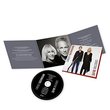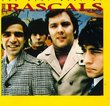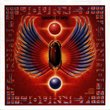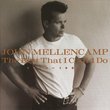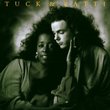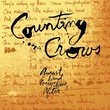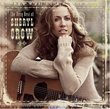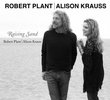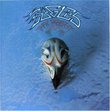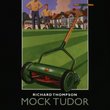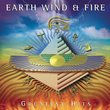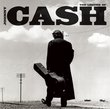| All Artists: Love Title: The Best of Love Members Wishing: 4 Total Copies: 0 Label: Elektra/Asylum Release Date: 3/11/2003 Album Type: Original recording remastered Genres: Alternative Rock, Pop, Rock, Classic Rock Styles: Oldies, Vocal Pop, Folk Rock, Psychedelic Rock Number of Discs: 1 SwapaCD Credits: 1 Other Editions: The Best of Love UPC: 081227384029 |
Search - Love :: The Best of Love
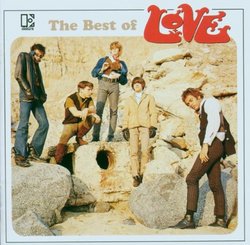 | Love The Best of Love Genres: Alternative Rock, Pop, Rock, Classic Rock
The definitive single disc collection. 22 album tracks & hard-to-find singles including, 'Alone Again Or', 'My Little Red Book', 'Seven & Seven Is', 'Hey Joe', & more. Elektra/Rhino. 2003. |
Larger Image |
CD DetailsSynopsis
Album Description The definitive single disc collection. 22 album tracks & hard-to-find singles including, 'Alone Again Or', 'My Little Red Book', 'Seven & Seven Is', 'Hey Joe', & more. Elektra/Rhino. 2003. Similar CDs
Similarly Requested CDs
|
CD ReviewsHarmonies with a kick Todd Boostrom | Pacific Palisades, CA United States | 05/12/2003 (5 out of 5 stars) "These musical geniuses have influenced so many other artists, but but don't take this as meaning the Love makes cryptic music for musicians to ponder over. Their work, while wide-ranging, is always accessible-- and more to the point-- a pleasure to listen to. From the sweet, meditative "Alone Again Or" (covered by old-school Punk group The Damned) to the adreneline-pumping "Seven And Seven Is" (covered by Billy Bragg), Love always knows where they're going, and going there with them is always fun. Like The Small Faces, Love is both tough and tender, and changes gears flawlessly to beautiful effect." Genius Like No One Else M. Allen Greenbaum | California | 01/05/2007 (5 out of 5 stars) "One of the most brilliant and iconoclastic bands in all of rock, "Love" (aka, "Arthur Lee and Love") has a unique sound that defies categorization. Web encyclopedia "Wikipedia" lists them in genres rock and roll," folk-rock." Psychedelic rock," and Psych-Folk," all labels which are essentially accurate, but none of which, of course, encapsulates their sound and attitude. They're a paradoxical group, based in L.A. but with San Francisco sensibilities, remarkably angry but incredibly tender, destined for fortune but ending with fame (although within a relatively small circle). Still, one is tempted to find some antecedents to their meandering mixture of punk, balladry, beach music, jazz, and the hodgepodge of styles and sounds that became known as "psychedelia." A comparison with other groups yields a wine-tasting compendium of notes: Pre-dating them, I hear the loose, raucous, playful sound of the Kingsmen's 1965 recording of "Louie, Louie," the romantic lyricism, precious posturing, and baroque textures of Left Banke's "Pretty Ballerina (1966)," the Stones' 1967 "Something Happened to Me Yesterday" and "Dandelion," Donovan, and the mid-1960`s politics and experimentation of the Yardbirds. Contemporary sounds include the Stones (who apparently lifted some of the lyrics to "She Comes in Colors"), the Kinks, with their own fresh musical synthesis (Ray Davies would later produce one of Love's albums), the very electric guitar solos recalling Muddy Waters and Jimi Hendrix, and the humor, parody, and harmonies of the Turtles. (Arthur Lee produced a 1964 record with Hendrix on guitar, and Hendrix appeared on the group's 1970 "False Start" album). Obviously, this is not a comprehensive list, but it perhaps suggests the heterogeneity of their influences, producing a unique and varying collection of songs. Probably their three most famous numbers are the punk-Neanderthal version of Burt Bacharach's (!) "Little Red Book," "Seven and Seven Is," also known as "the atom bomb song" because of its thunderous A-bomb closing, and an ultra-fast version of Billy Roberts' "Hey Joe" (most famously done by Hendrix). "Little Red Book" mocks the original, with a dominating and driving beat--anchored in the drums and bass--that prefigures Punk. Love's version of "Hey Joe" is sheer genius, the vocals break up the lyrics into nursery rhyme fragments, in ironic contrast to the homicidal, misogynistic lyrics ("I shot my old lady down"). While there are many facets to "Love," their romantic, free-spirited (but less well-known) songs contrast most heavily with the hits mentioned above. These songs don't have the easy structure that marked pop/rock music of the era, but drift in several directions--a little like Jefferson Airplane, but again, pretty hard to compare to anyone else. "Orange Sky" and "She Comes in Colors" are, respectively, an introspective ballad and a jazz-inflected number that--I hate to say it--seems hippie-like: "...My love, she comes in colors... you can tell her from the clothes she wears," unless it makes you think of Yardley, who (somewhat like the Stones) appropriated the color obsession to sell their products. Lest the band seem too obscure or inaccessible, just listen to the twin songs of "Alone Again Or" and "And More Again." These are as romantic as anything Bacharach wrote, especially the flamenco-tinged former, in which the band expresses a surprisingly powerful statement of love and idealism. The band creatively used wind instruments: The clarinet gave a floaty jazz feeling to several numbers, and the trumpet and sax supported the rhythm section and supplied solos. "Your Mind and We Belong Together" has a jangly "Byrds" guitar backing, a group that influenced Lee. "Laughing Stock" is an unusual self-referential song that somehow works, while "Your Friend and Mine--Neil's Song," is right out of "The Lovin' Spoonful." "Robert Montgomery" features their deeply "electrified" sound with surprising tempo and chord changes, and outstanding guitar work. A few more song notes: Fans will know that "From D. C.," a relatively well-known and widely praised song, is about a former band member's bout with drugs, but the remarkable thing is how well the total sound conveys melancholy and yearning. "Can't Explain" is a rollicking sound that seems transplanted from mid-60's London and "Softly to Me" is an oddly endearing love song with awkward repetitions of the word "darling," and "Stephanie Knows Who" is an energetic, even wild kind of punk jazz. In summation, there can be no summation, because no band has ever approached their unique and wildly diverse style. These days we demand a specific identity from our bands--it's easier on our brains, and the commodification sells more records. While this was also true in the buoyant late-1960's days of "Love," the band managed to transcend these limits, and, for a brief time and for too small an audience, to triumph. Rhino Records compilation of their mostly 1967-68 material is an essential document of one of the greatest bands of that or any other era." Well, almost... garbonzo | here, now | 11/09/2004 (4 out of 5 stars) "Rhino has by and large done right by the Love catalog over the years, but they just miss the mark here. No "Message to Pretty"? No "Castle"? No "August"? Tsk, tsk, tsk... should've taken care of business before chasing after later tracks. And I really don't know that the lengthy "You Set the Scene" belongs on an abbreviated best-of like this. Of course, this does have the great Rhino sound and packaging, but my recommendation would be to splurge for the two disc _Love Story_ set. It's worth it."
|

 Track Listings (22) - Disc #1
Track Listings (22) - Disc #1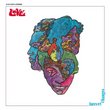


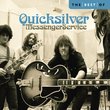
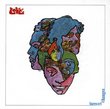
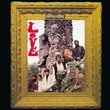

![Sgt. Pepper's Lonely Hearts Club Band [2 CD][Deluxe Edition]](https://nationalbookswap.com/cd//m/48/4848/13354848.jpg)
